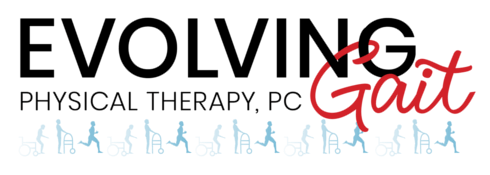Improve Your Health and Wellness by Changing Your Diet
The food you eat can have a significant impact on your energy levels. What’s more difficult to remember is that your dietary choices can also affect your joint pain!
At our physical therapy clinic, we believe in a multifaceted approach to treating acute and chronic pain. You are not merely a diagnosis or a set of symptoms for your physical therapist!
Call our clinic today to schedule an appointment if you believe you could benefit from a variety of techniques and lifestyle interventions, including dietary changes, to promote long-term relief.
How is my diet connected to pain?
Have you ever wondered how your food choices could be influencing your acute or chronic pain condition?
Here are three ways diet plays a role in your pain relief (or lack thereof):
- Certain foods exacerbate inflammation, while others relieve it. Inflammation is a normal part of your body’s immune system response and helps protect your body against things like illness or injury. In acute injuries, inflammation is an essential part of healing. But if inflammation lasts for too long, such as in the case of arthritis, tissue and cellular damage can occur. Inflammation also is a major factor in the experience of pain. It turns out that different types of foods can worsen inflammation and therefore may increase your pain. Pro-inflammatory foods can even harm the friendly bacteria in your gut, known as the microbiome (often called the “forgotten organ”). This can impair nutrient absorption and further disrupt your immune system, since your gut and immunity are closely linked.
- Certain foods can help enhance the healing process within your body. Your tissues, including joints, tendons, muscles, and nerves, are constantly being re-built. The body relies on nutrients like vitamins, minerals, fatty acids, and antioxidants to provide the “building material” needed to make these tissues and ensure the re-building process goes smoothly. If you don’t provide your body with these key materials, then the ability of your body to repair itself may be limited.
- Your food intake directly affects your body function. Eating too many calories can lead to weight gain, and researchers now know excessive body fat promotes inflammation. Excessive weight also increases the strain and stress on your joints and can raise the risk of health conditions often linked to pain, including fibromyalgia, arthritis, degenerative disc disease, and diabetes. On the other hand, if you don’t eat enough food, then your muscles and tissues may lack the energy needed to grow, repair, and regenerate themselves. Under-eating may also lead to fatigue and affect your ability to safely exercise or participate in things like physical therapy.
Tips for eating anti-inflammatory meals
Our physical therapy staff encourages our patients to consult with dietitians or other professionals for more customized and advanced nutritional support.
But we’re also happy to provide some basic guidelines that can optimize the well-earned results you get from working with a physical therapist.
The first tip: eat real food! Think minimally processed, nutrient-dense, diverse, and delicious:
- Fruits and vegetables (fresh, frozen, or even canned are all great—just watch for additives)
- Quality protein like eggs, lean meat, fish, and poultry
- Legumes, nuts, and seeds
- Fermented foods like tempeh, sauerkraut and kimchi (these are loaded in gut-healthy probiotics)
The key is to select foods that you enjoy eating so that making healthier diet choices is sustainable and simple. Our physical therapy team encourages our patients not to get bogged down by the latest fads and trends. Just start with the basics—plants, protein, and healthy fats—and go from there.
Another tip? Learn how to cook! Cooking at home can save you money and helps you better control what goes into your food. If pain makes it difficult to cook, a physical therapist can educate you about important things like activity pacing or home modifications that will make you more successful in the kitchen.
In addition to food, don’t forget water! You need great hydration every day to help your tissues stay healthy and flush out harmful toxins and waste products from your system. Staying well hydrated boosts circulation, enhances joint lubrication, eases muscle cramps, supports spinal disc health, alleviates headaches, and more.
Some people also find that taking certain supplements, including fish oil or chondroitin and glucosamine, helps alleviate their pain and improves well-being. The research on these supplements is inconclusive, and not all supplements were created equal. So, before taking any new supplements, chat with your primary care doctor first.
Finally, what to avoid? According to the Arthritis Foundation, certain foods and food ingredients may promote inflammation in the body and therefore exacerbate or prolong chronic pain. These foods include:
- Refined sugar
- Alcohol
- Refined carbohydrates (think crackers, candy, pasta, bread)
- Trans fat
- Vegetable oils
- Non-caloric artificial sweeteners
- MSG (a preservative often found in fast foods)
- Gluten (a protein found in grains like wheat, barley, and rye)
- Casein and lactose (a protein and sugar, respectively, found in dairy products)
- Saturated fats
You may choose to enjoy certain “treats” in moderation, like sweets or adult beverages. Just be mindful about how much and how often you’re consuming them.
Eating a healthy protein-filled snack and drinking a lot of water before a “treat” can help you control your portions.
Find the relief you’ve been looking for today
Looking for more natural ways to improve your health and alleviate pain?
Contact our physical therapy clinic today to make an appointment with an experienced physical therapist who can help your body and mind thrive by utilizing a customized array of drug-free and non-invasive techniques.
Sources:
- https://www.arthritis.org/health-wellness/healthy-living/nutrition/foods-to-limit/8-food-ingredients-that-can-cause-inflammation
- https://www.arthritis.org/diseases/more-about/how-fat-affects-fibromyalgia
- https://josr-online.biomedcentral.com/articles/10.1186/s13018-018-0871-5
Tags: nutrition, Health and Wellness

